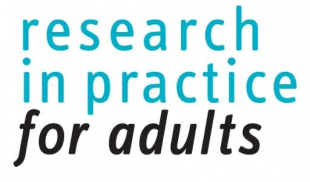In December 2015, a new offence of controlling and coercive behaviour in an intimate or family relationship was brought into law under the Serious Crime Act 2015. The law recognises that a pattern of coercive control lies at the root of domestic abuse.
Understanding and working with this new offence is very important for social workers in relation to safeguarding practice.

By definition, we work alongside people who have care and support needs arising from physical or learning disabilities, mental health issues or dementia, and who may be at greater risk of harm or abuse.
Challenging and improving social work practice and being clear about the knowledge and skills practitioners should have to ensure individuals and families are kept safe and enjoy their lives is a key part of my role.
So I was very keen that the Department of Health would make sure social workers and others were given support and guidance to respond appropriately to any disclosures or observations of controlling and coercive behaviour.
 Research in Practice for Adults (RiPfA) and Women’s Aid have been working together to develop new resources to support social workers and social care practitioners who are working with these situations. The website is now live and the resources can be accessed here.
Research in Practice for Adults (RiPfA) and Women’s Aid have been working together to develop new resources to support social workers and social care practitioners who are working with these situations. The website is now live and the resources can be accessed here.
To support these resources Women’s Aid have been running coercive control ‘train the trainer’ workshops in three of the Association of Directors of Adult Social Services (ADASS) regions (West Midlands, East Midlands and London).
 We have had some great feedback so far with attendees saying the workshops are ‘very engaging and informative’, ‘a good mixture of information and learning tools’, and ‘really helpful and inspiring’. Further sessions will follow in other regions.
We have had some great feedback so far with attendees saying the workshops are ‘very engaging and informative’, ‘a good mixture of information and learning tools’, and ‘really helpful and inspiring’. Further sessions will follow in other regions.
The workshops have skilled those attending to be able to design their own workshops or CPD activities within their authorities, ensuring learning opportunities are cascaded to all. The workshops are being arranged by the ADASS safeguarding regions, so people can contact their regional lead if they’d like to find out about booking a place.
As social workers we are constantly trying to find the best possible approaches to support those we serve. Innovation through learning is something I feel holds great value; however I do recognise the challenges in attending full day training sessions along with balancing caseloads, and that is why the new online resources include bite-sized activities so that everyone can benefit from the learning they have to offer.
The coercive control homepage hosts more information about coercive control through video introductions from me and Polly Neate of Women’s Aid. The resources page features an evidence scope with numerous supporting guidance sheets and slides on the historical theory of domestic abuse.
There is also a series of case studies including fictional but evidence-based scenarios with accompanying assessments and DASH-RICS, for discussion in training sessions; along with ideas on how these can be used as learning materials.
This is the time for building on social work expertise to manage the increasing complexity of people’s lives. This is about supporting individuals to balance the management of risk alongside positive risk-taking, involving advocates and accessing appropriate legal interventions where necessary. Safety and happiness should go hand in hand.
Leave a comment